The EU Agreed on a Drop in the Ocean
Adelina Marini, September 29, 2015
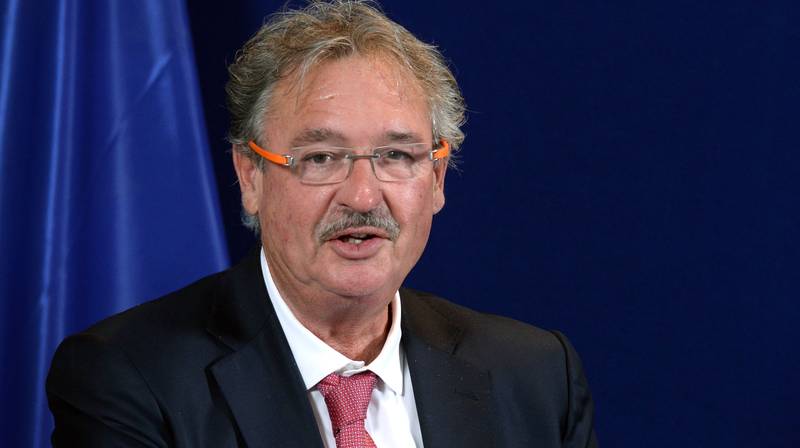
The decision of EU Ministers of Interior from last week for the relocation of 120 000 refugees from Italy and Greece got a very dramatic reception. There were talks of a momentous decision to mark the beginning of the end of the EU for the Council of Ministers dared to use the fully legal voting mechanism by a qualified majority, thus sidestepping the tyranny of the minority, led by Hungary. Despite Commissioner for Migration, Home Affairs and Citizenship Dimitris Avramopoulos naming it “a historic moment”, one could still feel tension in the air after the meeting was over. To the point of the incumbent President of the Council of the European Union from Luxembourg, Jean Asselborn, refusing to give the translator the opportunity to translate his answer to the question of a French speaking journalist with the motive that French is in an international language and whoever got it – got it.
And it is all about just a drop in the ocean
Can you imagine it, the European Union – a community of over 600 million citizens, advertising itself as a global, true soft, but superpower none the less – got to the point of disintegration over 120 000 refugees! The old Iron Curtain turns out had not been destroyed in ’89, just set aside in the political closet by prescient politicians with authoritarian views. It got raised back in a flash to remind the Unification of Europe is just a myth, a romantic detour for idealists, which will make this year’s celebrations marking the fall of the Berlin wall somewhat alike to the gay parades – a question of values. Many will not celebrate because they are not gay, others will celebrate without being gay because it is the correct thing to do, and a third group will be insulting them.
At the first clash with several tens of thousands of refugees at the South-Eastern flank rhetoric from the eve of the Second World War quickly floated up in the open in the EU, splattering mud all over the shiny Nobel Peace Prize that was ceremoniously awarded to the EU in 2012 amid sharp criticism by many, most of all in the Western Balkans region, who, ironically, once again placed European idealism to the test. Popular opinion is that what was achieved on September 22nd does not solve the refugee crisis, but just creates conditions for it to be solved. Nevertheless, nobody dared say out loud that what was agreed, regardless of the way it was voted, is not voluntary. We had to figure it out for ourselves.
This is why the words of European Council President Donald Tusk after the emergency summit on September 23rd that at the moment there are eight million displaced people in Syria and four million have fled to countries neighbouring Syria acted as a cold shower. “We should be talking about millions of potential refugees trying to reach Europe from Syria alone. Not to mention Iraq, Afghanistan, Eritrea and other places.” However, “we” do not talk about this. We talk about how divided we are, how 120 000 people, divided among 26 member states, will topple the big European post-war achievement. What was agreed makes the words of Italian Prime Minister Matteo Renzi of last June even more valid today: “If this is your European Union, no thanks”.
While many concentrated on HOW the decision was made by the Council of Ministers of Interior on September 22nd they missed the essence – WHAT was voted on. It is about an alteration of key European legislation, which introduces rules of action in emergency situations. You could say it is an alteration of the Dublin Regulation. It was necessary for a long time now in order to provide help to front-line countries – mainly Italy and Greece until recently – in their dealing with the enormous refugee flow. According to FRONTEX data, the central and east Mediterranean routes were the major way in for illegal entry into the EU during the first eight months of 2015. Since the beginning of the year around 116 000 people have entered Italy. Just in May and June of this year there were 34 691 illegal border crossings detected by the European border agency, and in July and August they are already 42 356. This is a 20% increase.
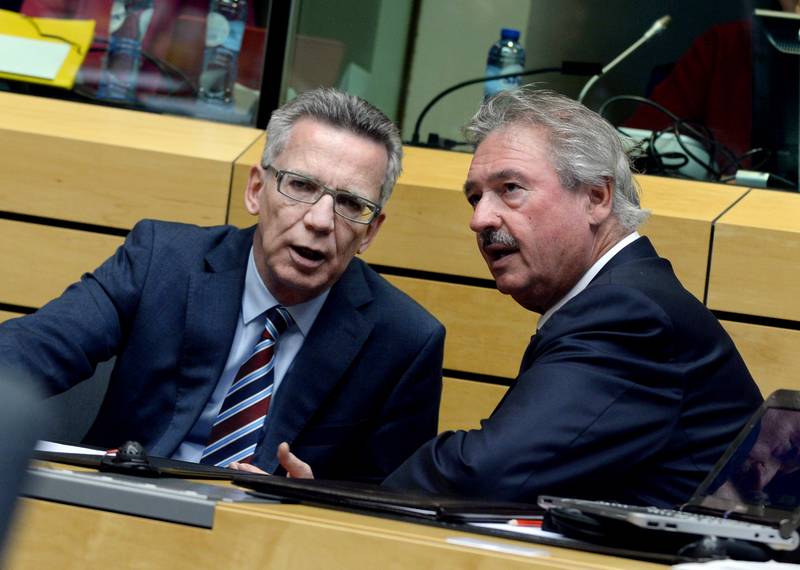 The increase is also sizable in Greece, which is affected the worse. Since the beginning of the year over 211 000 people have arrived in the country. In May and June 53 624 illegal border crossings were detected, and another 137 000 in July and August, which is a 250% increase. What is extremely important in perceiving these numbers is that by EUROSTAT data the majority of illegal migrants in these two countries meet the conditions for receiving refugee status. This means they come from countries with high levels of refugee status recognition, i.e. asylum applications are largely legitimate. Between January and July of 2015 in Italy 39 183 people have asked for international protection, or asylum in other words. In comparison, for the same period in 2014 applications were 30 755. The increase there is 27% and in Greece it is 30%.
The increase is also sizable in Greece, which is affected the worse. Since the beginning of the year over 211 000 people have arrived in the country. In May and June 53 624 illegal border crossings were detected, and another 137 000 in July and August, which is a 250% increase. What is extremely important in perceiving these numbers is that by EUROSTAT data the majority of illegal migrants in these two countries meet the conditions for receiving refugee status. This means they come from countries with high levels of refugee status recognition, i.e. asylum applications are largely legitimate. Between January and July of 2015 in Italy 39 183 people have asked for international protection, or asylum in other words. In comparison, for the same period in 2014 applications were 30 755. The increase there is 27% and in Greece it is 30%.
The agreement of last week is to alleviate the situation in these two countries, which are at the muzzle of the migrant flow. And if on the subject of the debt crisis one could argue that Greece does not really deserve any European solidarity, in the case of the migrant-refugee crisis this is definitely not the case. In a preliminary draft of the agreement Hungary was also mentioned as a country from which refugees are to be distributed, but Budapest refused and thus was removed from the scheme. However, apart from taking care of the ones that have already arrived, it will also have to accept refugees according to the quota principle from Italy and Greece. The amendment voted in on Tuesday practically legitimises the exception from the Dublin rules over the next two years. Initially, a total of 66 000 people will be relocated from Greece and Italy to the rest of the member states (15 600 from Italy and 50 400 from Greece). The other 54 000 will be distributed in the second year.
Only refugees who have received a positive reply to their asylum applications at the first instance will be transferred. Their final status will be confirmed in the new receiving country. Vulnerable groups of refugees will be distributed with priority – women, children, and the infirm – with reuniting of families being a top priority. Receiving countries will have the right to “shop” for refugees on the basis of language, which will aid their better integration and labour qualification. Member states will be able to refuse to accept a refugee for whom there is intelligence data that he/she represents a threat to the national security of the receiving state. Only the refugees that are coming from states with high levels of approval of refugee status will be subject to quota distribution. A benchmark of 75% is set in the agreement. For every refugee taken in the accepting state will receive a 6 000 euro aid from the European budget at the same principle as the front-line countries. The sending countries (Greece and Italy) will be receiving 500 euro for every relocated refugee to cover their expenses in sending them to the receiving country.
When we talk about solidarity with Greece and Italy, especially using strong language like “imposed by force from Brussels”, we need to keep in mind that these 120 000 refugees represent approximately 43% of the total number of third country nationals that have entered Italy and Greece with clear need for international protection. This means that less than half of refugees are eligible for distribution, while the rest will remain in the care of Greece and Italy until their status is clarified. .
A member state could ask for an exemption from quota distribution only if it has very legitimate reasons like, for example, itself becoming a “victim” of excessive migrant pressure as is the case of Croatia, where 84 800 migrants have entered to this moment, but they do not remain in the country. Whether the exemption application is legitimate will be decided by the European Commission. There will be no sanctions imposed to states not applying the agreement as was initially proposed before the meeting of September 22nd. The same rules will apply to them as now – the EC will first notify the offending state that it is in breach of European legislation and finally it will take it to court. The EC fuelled the fire by announcing the very next day the infringement decisions against most member states for failing to fully implement legislation making up the Common European Asylum System. Against two of them the proceedings are in the second phase (before court). Those are Bulgaria and Spain for or having failed to transpose the Directive that provides protection from returning the asylum-seeker to the country where his/her life is in danger, provides residence permits, travel documents, access to employment, access to education, social welfare, health-care, etc.
Bulgaria and Spain were first warned in June 2013 and January 2014, but until last week they had not transposed the Qualifications Directive to their national legislation. The only states that the EC did not start proceedings against in the last week were Croatia, Finland, The Netherlands, and Slovakia. The rest are just 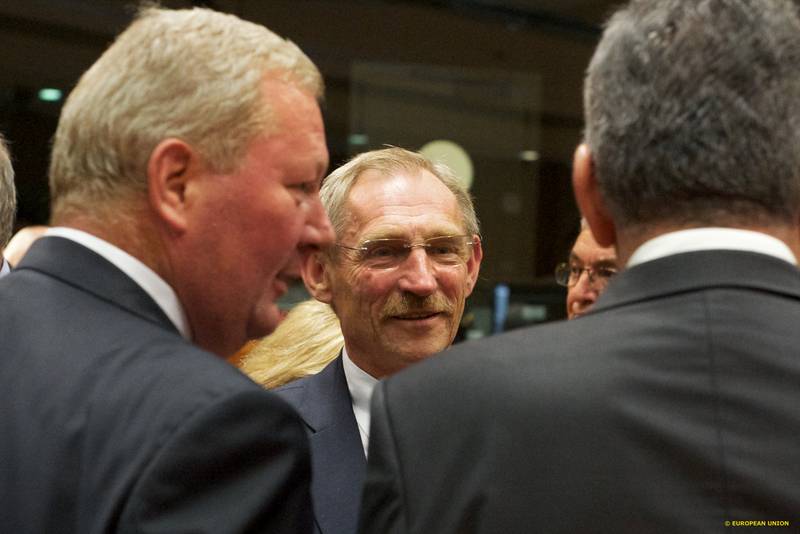 with a first warning on the Asylum Procedures Directive and the Reception Conditions Directive.
with a first warning on the Asylum Procedures Directive and the Reception Conditions Directive.
Refugees eligible for quota distribution have no right of choosing where they are to be transferred, unless there is danger of infringement of their human rights. To prevent secondary movements, meaning the refugees leaving the receiving country to go where they please, they can be returned, or even excluded from quota distribution. Offenders will have no access to social welfare in a state different from the one they have been allocated to. If national legislation provides for it, any refugee that has left the receiving country can be banned from residing in another state.
To avoid a situation where member states simulate bad reception conditions to shirk obligations under this agreement, capitals will have to report to the EC on a regular basis on the conditions they provide to those looking for international protection. Member states should abstain from providing incentives that could make them too desirable to refugees. States will have to report to the EC every six months on the implementation of quota distribution. According to the quotas agreed, Austria will have to accept 462 people from Italy, Bulgaria 201, Croatia 134, the Czech Republic 374, France 3 064, Germany 4 027, Slovenia 80 and so on. From Greece Hungary will have to take in 988 people, Bulgaria 651, Croatia 434, Finland 982, Lithuania 318, Holland 2 978.
Quarrelling out of solidarity
The agreement covers many of the concerns that member states have. Most important are the provisions for secondary movements, refugee “shopping”, standardisation of accommodation conditions, and coordination between member states to avoid stimulating receiving state “shopping” by the refugees. Every state must take care of integrating the newly arrived refugees and guarantee its affiliation to the common European Union system of values. “We in the EU respect the Geneva Convention”, said crossly the Minister of Immigration and Asylum of Luxembourg Jean Asselborn when asked about Hungary’s resistance. In his words, Hungary must accept refugees. He found it inexplicable that the Council’s agreement is viewed as Brussels dictate. “Each member state is represented in Brussels”, he explained. Mr Asselborn pleaded for zero tolerance to concepts based on skin colour, religion, and other xenophobic and racist arguments. “Not a single member state has the right to refuse [to implement this agreement]”, concluded the minister.
The meeting was over too early for Croatian minister Ranko Ostojić, who stormed out less than an hour after it started, infuriated by the resistance of the Visegrád states. “At the instant they cannot agree on the quotas for 120 000 people, the country that to this moment is entered by 35 000 people in seven days, I have no more business at this meeting”, said Mr Ostojić. Croatia, however also refused to be a country that refugees are transferred from to the others for, according to Zagreb, this would mean turning it into a "hotspot", meaning retaining most of the refugees on Croatian territory until the final clarification of their status. Croatia, like Hungary, prefers being a transit state. The amendments to European legislation 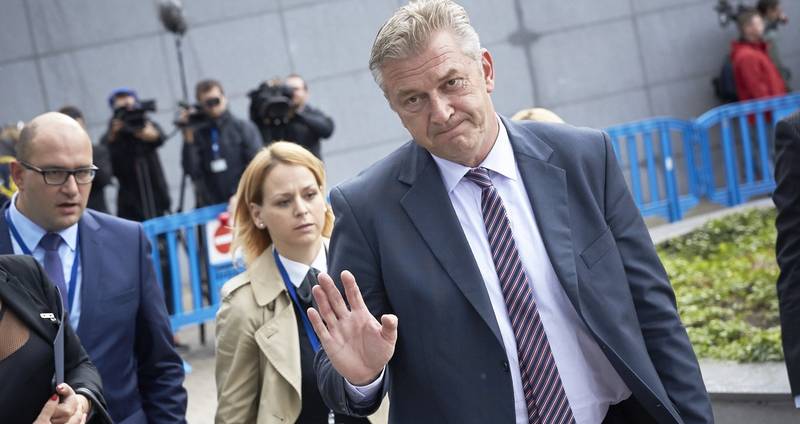 voted in on September 22nd allow the inclusion of new members in the quota distribution at their request with the corresponding recalculation of the current quotas.
voted in on September 22nd allow the inclusion of new members in the quota distribution at their request with the corresponding recalculation of the current quotas.
EU’s solidarity for 120 000 refugees is quite costly. By all accounts, however, the price is yet to rise, for the agreement of member states on several other important issues is needed in order to win European solidarity. First of all, it should not be forgotten that the agreement reached on Tuesday is only temporary. It says clearly in it that the EC can ask for its revision guided by the “evolution” of the situation in the field. This means that if the influx continues quotas will have to be revised up. Another subject lacking agreement is the proposal for common protection of external borders. Donald Tusk admitted that the idea was not received with enthusiasm by member state leaders, although there is “a change” noticed in the way of thinking about the outside borders. This issue will be discussed at the end of the year when the EC is expected to present the official proposal for common land and sea guard of European borders.
Somewhere into the future ahead member states will have to agree on a permanent relocation mechanism, for which there is no appetite at this stage, but looking at the situation in the Middle East and the expectations that the refugee flow will not only continue, but also grow, the policy of “no” will not solve the problem. It does not help either to face it taking small steps to the sole purpose of avoiding the big conversation about the real situation. So, if the solution for 120 000 agreed upon on September 22nd is historic, what will the next decisions that the EU will have to make be called?
Translated by Stanimir Stoev
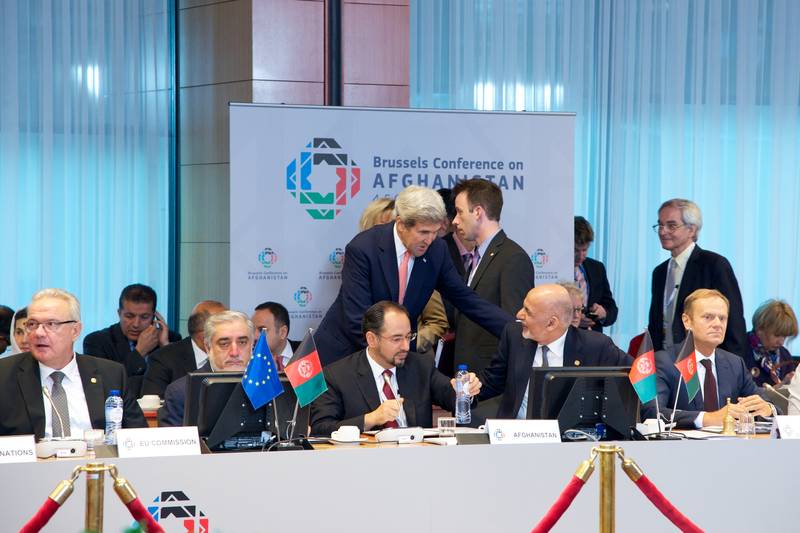 | © Council of the EU
| © Council of the EU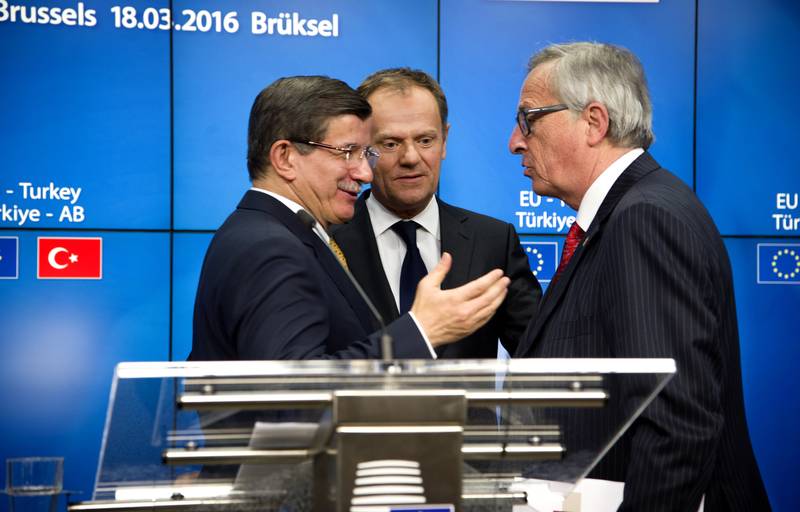 Davutoglu, Tusk, Juncker | © Council of the EU
Davutoglu, Tusk, Juncker | © Council of the EU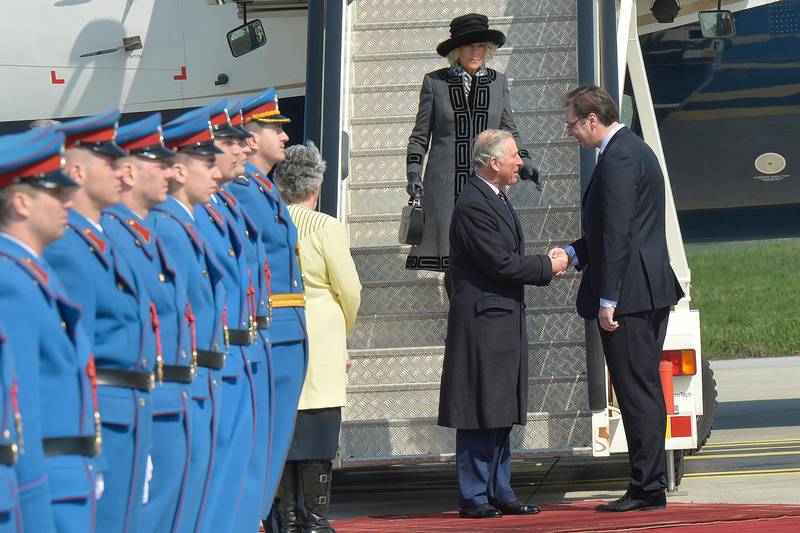 | © Vlada RS
| © Vlada RS